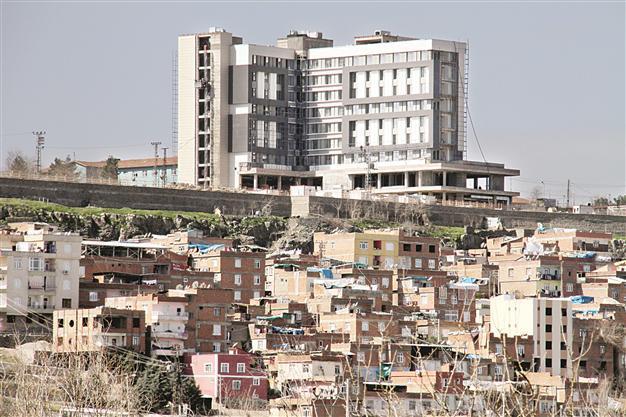Investments boost in southeastern Turkey
ANKARA - Anatolia News Agency

In the first two months of the year 24 licenses issued in Diyarbakır, reaching from a previous four, while the employment creation provisioned by these investments has jumped by 11 times, surpassing 1,000 people. AA photo
The number of investment incentive licenses has surged by six times in the southeastern Turkish city of Diyarbakır in the first two months of the year, as the new incentive scheme aiming to boost the eastern economy has started to gain momentum, spurred by the increasing hopes for peace.The number of issued licenses has reached 24 from a previous four in Diyarbakır, while the employment creation provisioned by these investments has jumped by 11 times, surpassing 1,000 people. This upsurge is expected to spread in waves in parallel with recent signs of political reconciliation in the region after years of civil war and instability in southeastern cities.
As well as rising expectations that the region will recover from political turbulence, the new incentive scheme introduced by the government last summer has begun to yield results.
“With the latest incentive system, economic mobility has been kicked off and employment opportunities have increased in substantial terms in the region, where the investment level couldn’t be pulled to desirable levels for years despite efforts,” Turkish Economy Minister Zafer Çağlayan said in a written statement.
Sixth region incentives
Provinces that are a part of the measure, now ranked in terms of social and economic development, will fall under six groups in terms of incentive priority. The provinces in the sixth group, mostly consisting of poorer eastern and southeastern provinces, will receive the most investment support.
The overall increase of the issued incentive licenses for the sixth region is impressive as well. The number of licenses, which was 53 last year, has doubled and reached 155 on an annual basis.
“These developments indicate that the region will become a manufacturing hub and will create its own attraction centers,” the minister said.
The government will pay the employee insurance costs on the minimum wage for 10 years for investments made in sixth-category provinces, which are also important grounds for an increase in incentive applications and job procurement. One of the biggest problems of the region is chronic unemployment, and the government intends to lift the extra burden on bosses.
Turkish cities that are considered “sixth regions” are: Ağrı, Ardahan, Batman, Bingöl, Bitlis, Diyarbakır, Hakkari, Iğdır, Kars, Mardin, Muş, Siirt, Şanlıurfa, Şırnak and Van.
















